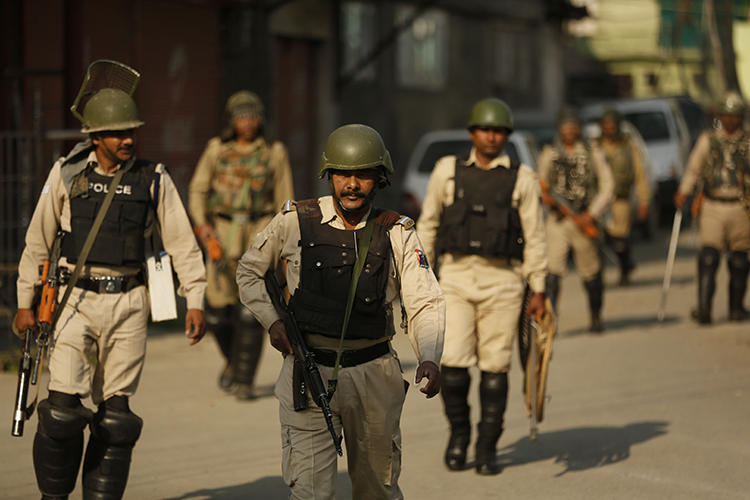On June 24, 2019, police in Indian-controlled Jammu and Kashmir arrested Ghulam Jeelani Qadri, the editor of privately owned Urdu-language daily Aafaq, as part of a 27-year-old criminal complaint against him, according to news reports.
Police arrested Qadri at around 11:30 p.m., a local court ordered his release the following day on a bail of 20,000 rupees ($290), and the journalist is slated to appear before a court on July 31, according to Indian daily The Hindu and the journalist, who spoke to CPJ via phone.
Qadri told CPJ that the arrest stemmed from a police complaint filed against him in 1992, when he ran a news agency called JAK News, alleging that he distributed news and press releases issued by militant groups. The complaint was filed under the Terrorist and Disruptive Activities Prevention Act and alleged that he sought to overthrow the government, according a report by the Press Trust of India news agency.
Qadri said that seven other journalists were also targeted in the 1992 complaint, two of whom have since died, but none have been arrested to his knowledge.
Morifat Qadri, the journalist’s brother, told CPJ via phone that the police have never raised objections against Ghulam Jeelani Qadri when checking his passport since 1992; according to government regulations, police are required to flag pending criminal cases against applicants during passport checks.
The journalist told CPJ that he does not believe anything recently published in Aafaq triggered the arrest.
Inspector General of Police Swayam Prakash Pani denied the allegation that Qadri is being targeted because he is a journalist, and called the arrest a routine procedure done for pending cases. Pani told CPJ via phone that Qadri should have approached the courts earlier to petition to have the case dropped.
This year, Jammu and Kashmir police have filed criminal charges against journalist Aasif Sultan, who has been in jail since August 2018, and the state’s government has restricted coverage of events and pulled advertisements from major local newspapers, as CPJ has reported.
